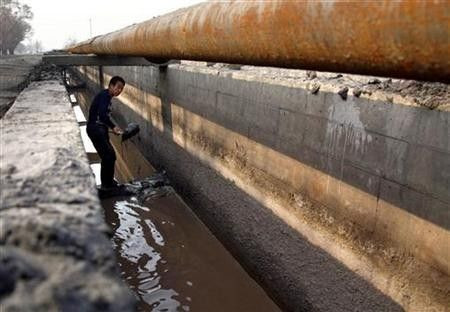EU wants rare earth clarity from China: trade chief

The European Union wants more clarity from Beijing on increased export quotas for rare earth minerals from dominant producer China in meetings next month and December, Europe's trade chief said.
EU Trade Commissioner Karel De Gucht told Reuters late on Tuesday that Brussels was insisting on higher quotas of the minerals that are needed in new technologies ranging from electric cars to military surveillance.
We have been insisting repeatedly with the Chinese that their quotas should be sufficiently high on rare earth materials because they are crucial to quite a lot of technologies and industries and they cannot all of a sudden close the market, De Gucht said in an interview during a visit to Namibia.
China produces more than 95 percent of global rare earth metals and its efforts to bring the sector under greater control, citing resource depletion and environmental degradation, have alarmed its overseas customers.
De Gucht said the EU wanted more clarity from China to prevent legal action.
In October we have a summit meeting with the Chinese leadership and in December we will have the economic dialogue with the Chinese and we will discuss this item and we hope we can come to a common understanding so that we not again have to litigate about rare earth materials, he said.
A World Trade Organization ruling in July, dismissing China's claim that its system of export duties and quotas on raw materials served to protect its environment and scarce resources, was a victory of the United States, the EU and Mexico.
China was taken WTO in 2009 with the U.S., Mexico and the EU saying export restrictions on raw materials including coke, bauxite and magnesium discriminated against foreign manufacturers and gave an unfair advantage to domestic producers.
In January, a European Commission strategy document said the EU would confront any country that restricted supplies.
Demand for rare earths -- a group of 17 elements used to produce catalytic converters, permanent magnets and battery cells -- is expected to double in the next five years, but Chinese output growth is likely to be much slower, and the United States and Japan are considering taking legal action.
FREE RIDER
De Gucht said China's big investments in the African resource sector also brought responsibilities.
China pursues a policy where they want to ensure they have the necessary raw materials for their industry. That's their right, but they have to observe international rules. They have become one of the most important economies in the world and then you cannot be a free rider.
De Gucht said the EU was disappointed that the 10-year-old Doha round of trade talks had not yet been closed.
Our middle position between developing countries and developed economies did not bear any result. We had hoped that there would be at least a package for the least developed countries... We did not get there, so we are disappointed, but we will make all efforts possible to proceed with Doha.
He indicated that Namibia could be moving closer to signing a long-delayed Economic Partnership Agreement (EPA) with the EU.
We took stock of the EPA negotiations and cleared up misunderstandings that would have been a hindrance for signing, he told reporters at an earlier news conference.
Namibian Fisheries Minister Bernhardt Esau told reporters Namibia felt outstanding issues had now been cleared up.
Namibia is ready to sign. There is an understanding that the outstanding issues can be solved, Esau said.
EPAs are EU-planned trade deals with six regional groups of former EU colonies. African countries have been reluctant to sign the agreements.
© Copyright Thomson Reuters 2024. All rights reserved.





















